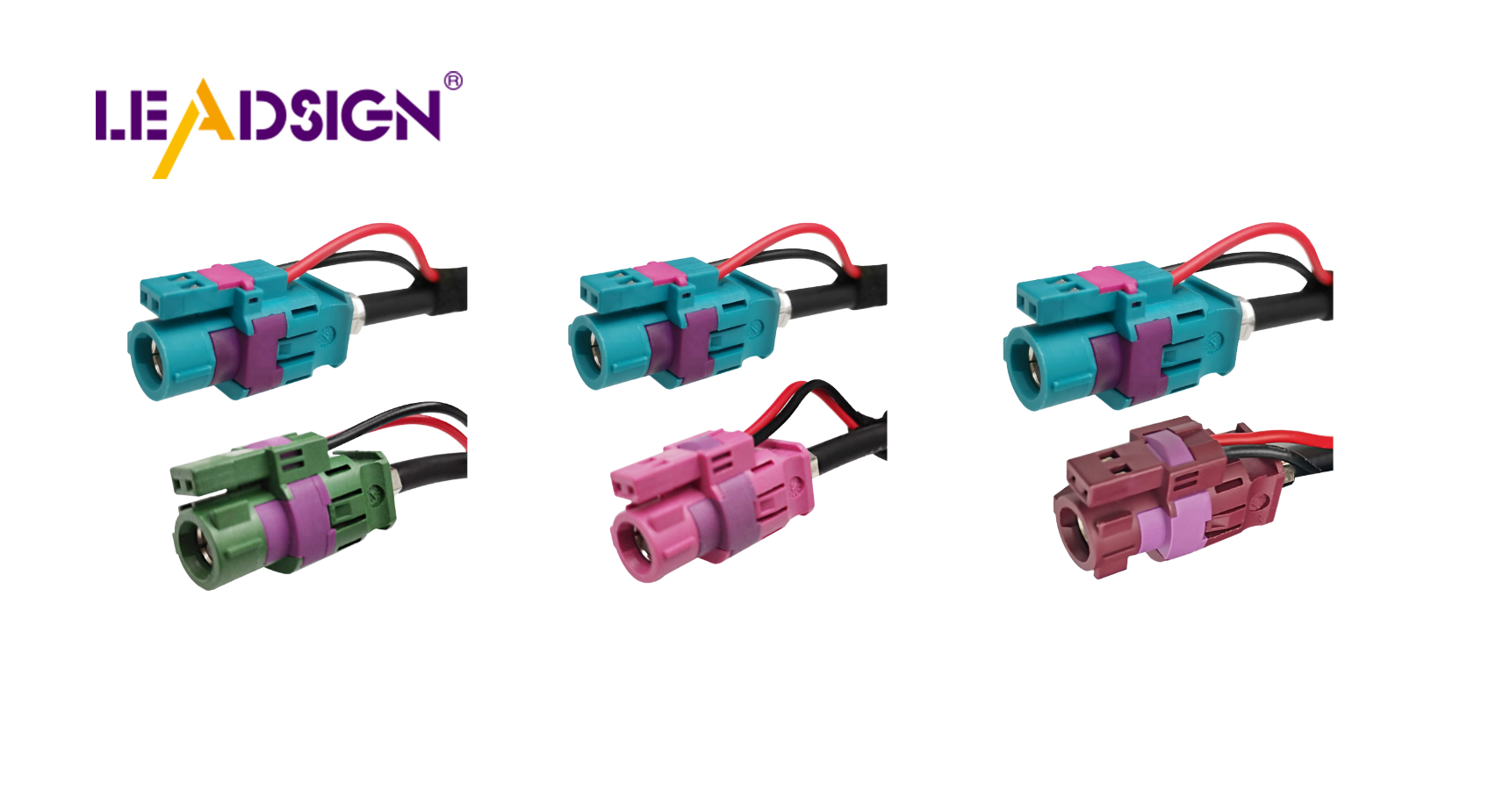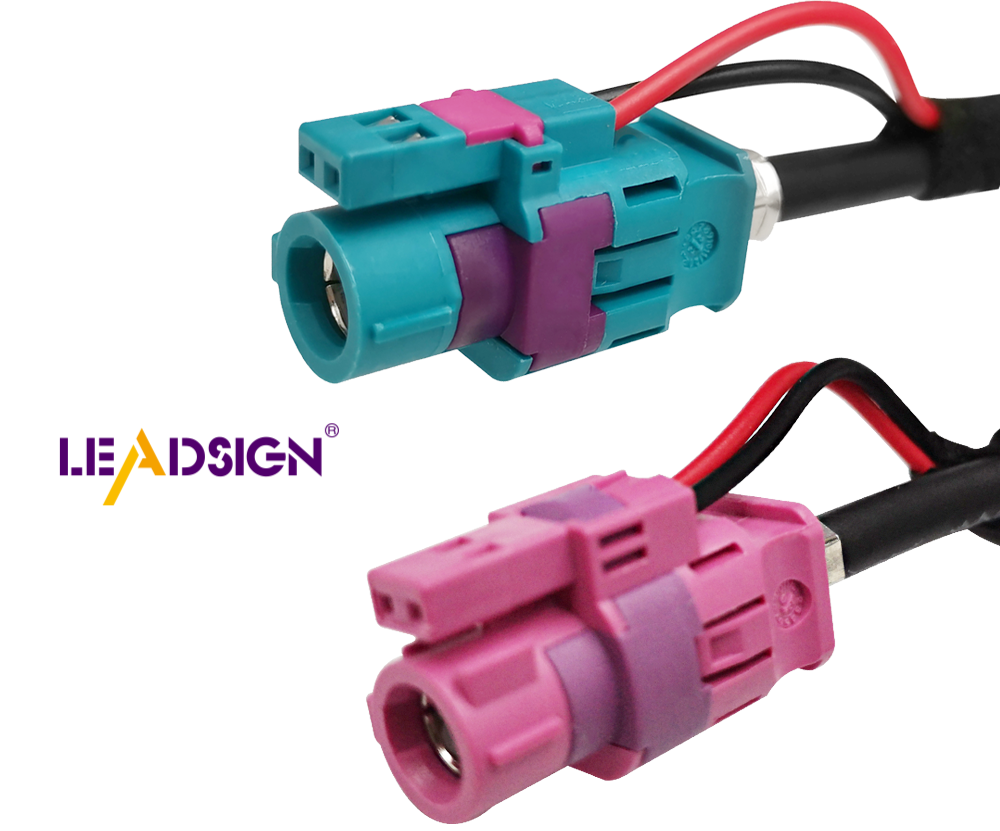Comparing Custom Wire Cables for Vehicles

Choosing the right vehicle cable for your car is crucial. It ensures your vehicle operates efficiently and remains safe. There are various types of vehicle cables, and they significantly impact how your car performs. Understanding these cables helps maintain your vehicle's functionality and prevents electrical issues. For instance, battery cables need to be thick as they carry substantial power from the starter. Selecting the appropriate vehicle cable prevents you from facing breakdowns. This knowledge empowers you to choose the best cables for your car.
Key Takeaways
Choosing the right vehicle cable is essential for your car's performance and safety, preventing potential breakdowns.
Understanding the different types of wires, such as GPT, TWP, SXL, and GXL, helps you select the best option for your vehicle's needs.
Wire thickness is crucial; thicker wires carry more power and are necessary for high-demand components like battery cables.
Consider the heat ratings of wires to ensure they can withstand the temperatures they will encounter in your vehicle.
Selecting the right wire material, such as copper for flexibility or aluminum for weight savings, can enhance your car's efficiency.
Regularly check your car's wiring for signs of trouble, like flickering lights or strange smells, to catch issues early.
Opt for reputable brands and read reviews to ensure you choose high-quality wires that will last and perform well.
Basics of Car Wiring
Parts of a Car Wiring System
Car wiring is like the nervous system of your car. It has many parts that work together. Important parts are wires, connectors, and terminals. Wires send electricity to different places. Connectors hold wires together tightly. Terminals are where wires connect, making sure electricity flows well.
Importance of Wiring for Cars
Wiring is very important for cars. It powers things like lights, starting the car, and music systems. If wiring is bad, these things won't work right. For example, the battery cable helps start the car. If it breaks, the car might not start. Knowing about car wiring helps keep your car working and safe.
Common Car Wiring Problems
Signs of Wiring Trouble
Finding wiring problems early can stop big issues. Look for flickering lights, broken gadgets, or weird smells. You might see blown fuses or power cutting out. These show wiring problems that need fixing fast. Checking often helps find problems before they get worse.
Bad Wiring and Car Performance
Bad wiring hurts how a car works. It can make electric parts fail. For example, bad wiring can mess up the engine, making it less efficient. It can also cause safety problems, like fires. Good car wiring stops these issues, keeping your car safe and reliable.
Types of Vehicle Cable

Knowing about different vehicle cables helps your car's electricity work well. Each cable type has a job and special benefits. Let's look at main and special wires used in cars.
Main Wire Types
Main wires are key to your car's electricity. They link parts and help electricity move easily.
GPT (General Purpose Thermoplastic)
GPT wires are popular in cars because they are flexible. They have a normal thickness, good for basic circuits and trailers. These wires resist oil, fire, and scratches, lasting in tough places. They work from -40°C to 85ºC, staying strong in many conditions.
TWP (Thin Wall Polyvinyl)
TWP wires are light with thin covers, easy to use. Even though thin, they work well up to 105ºC. TWP wires fit where space is tight and weight matters.
Special Wire Types
Special wires are made for jobs needing better features.
SXL (Cross-Linked Polyethylene)
SXL wires are strong and handle heat well. They have normal thickness, used in basic circuits. With a range of -40°C to 125ºC, SXL wires handle heat, great for engines and hard spots.
GXL (Thin Wall Cross-Linked Polyethylene)
GXL wires balance strength and bendability. They are thin, cutting weight and size, good for trucks and trailers. GXL wires work from -40°C to 125ºC, resisting heat. They are great for battery cables, needing trust and good work.
By knowing these wires, you pick the right cables for your car. This keeps your car's electricity working well and safe.
Comparing Wire Details
Picking the right wires for your car is important. Knowing wire details helps your car's electric system work well and safely.
Important Wire Details
Wire Thickness and Why It Matters
Wire thickness means how thick the wire is. It shows how much power the wire can carry. Thicker wires, with smaller numbers, carry more power. For example, battery cables need thick wires to start the car. Thinner wires are good for lights or small gadgets. Picking the right thickness gives parts the right power without getting too hot.
Heat Ratings and Strength
Heat ratings show how hot a wire can get without breaking. This matters because cars face hot and cold places. Wires with high heat ratings are stronger and handle heat better. Wires in engines need to take high heat. Picking wires with good heat ratings makes them last longer and work well.
Wire Material Choices
Copper vs. Aluminum Wires
Copper and aluminum are main wire materials. Copper is great for carrying power and bends easily. It works well for most car uses. Aluminum is lighter and cheaper but carries less power. It's used when cutting weight is key. Knowing these helps pick the right wire for your car.
Cover Materials and Their Uses
Cover materials keep wires safe from damage and stops shorts. Common covers are PVC and Teflon. PVC is cheap and handles heat well, good for most cars. Teflon handles heat better, used in hot spots. Picking the right cover helps wires work well and stay safe.
By knowing these details, you pick the best wires for your car. This keeps your car's electric system working smoothly and safely.
How to Pick the Right Car Wires
Choosing the right wires for your car means knowing what your car needs and checking the best choices out there. This makes sure your car's electric system works well and safely.
Checking What Your Car Needs
Knowing Power Needs
To pick the right wires, know how much power your car parts need. Each part, like lights or controls, uses a certain amount of power. Main wires are used for low-power things like lights. Knowing the power each part needs helps you pick wires that won't overheat or break.
Thinking About the Environment
Where and how wires are used matters a lot. Wires in the engine need to handle heat. Wires outside need to resist water and rust. By thinking about these things, you pick wires that work well in different places.
Looking at Brand Choices
Best Brands Out There
For cars, picking wires from good brands is important. Brands like Yazaki, Furukawa Electric, and APTIV are known for good wires. They have products for different car needs, making sure they last and work well.
Reading Reviews and Tips
Reading what others say about wires can help. Look for comments on how long they last, how easy they are to put in, and if people like them. This helps you pick wires that fit your car and what you want.
By checking your car's needs and looking at brand choices, you can pick the best wires for your car. This makes your car work better and stay safe longer.
Picking the right car wires is important for how your car works and stays safe. You should know about different wire types and what they do. This helps you choose wisely. Think about wire size, what it's made of, and its cover to make sure it works well in cars. Use rules and smart ways like heat testing to pick better. This stops problems and gets good results. Always remember, the right car wire makes sure your car's electric parts work well and safely.
FAQ
What are primary wires in car cables?
Primary wires are the most used car cables. They work in low-power areas like lights and dashboards. These wires help your car's main systems run well.
Why know different wire types for cars?
Knowing each wire type stops problems. Wrong wires can cause shorts, system issues, or fires. Picking the right wire keeps your car safe and lasting longer.
How do I pick the right wire thickness for my car?
Wire thickness shows power it can carry. Thicker wires carry more power. Battery cables need thick wires to start cars. Pick the right thickness to give parts power without overheating.
What materials are best for car wires?
Copper and aluminum are main materials. Copper carries power well and bends easily, good for most cars. Aluminum is lighter and cheaper but carries less power. Choose based on car needs and weight.
How do insulation materials affect wire work?
Insulation keeps wires safe and stops shorts. PVC and Teflon are common. PVC is cheap and handles heat, good for most cars. Teflon takes more heat, great for hot spots. Pick the right insulation for safety and strength.
Can bad wiring hurt my car's work?
Yes, bad wiring can hurt your car's work. It can break electric parts, hurt engine work, and cause safety risks like fires. Good wiring keeps your car safe and working well.
How often should I check my car's wiring?
Check often to find problems early. Look for flickering lights, broken gadgets, or weird smells. Regular checks stop big problems and keep your car running well.
What to think about when picking a wire brand?
Pick brands known for quality. Brands like Yazaki, Furukawa Electric, and APTIV make strong products. Read reviews to help pick the best wires for your car.
Are special wires needed for all cars?
Not all cars need special wires. They are for tasks needing more features, like high heat resistance. Check your car's needs to see if special wires are needed.
How do outside factors affect wire choice?
Outside factors matter for wire choice. Engine wires need to take high heat. Outside wires need to resist water and rust. Think about these to pick wires that work well in different places.
See Also
Maximizing Automotive Data Flow With Innovative Connectors
Boosting Data Transfer Rates With Fast Automotive Connectors
Improving Automotive Data Transfer Using FAKRA PCB Connectors

